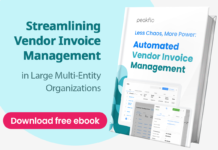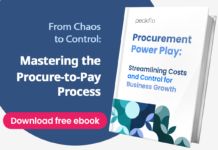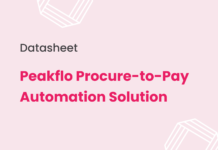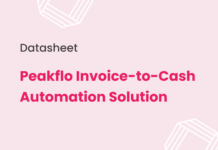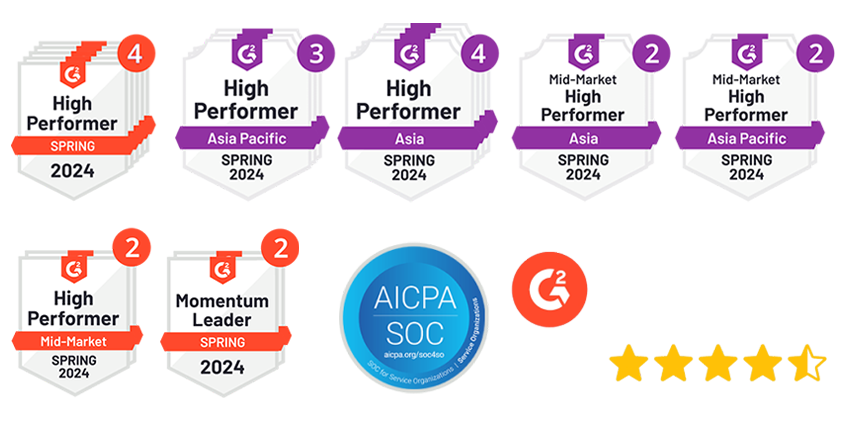Chief Financial Officer (CFO) and controller, holding the senior roles in the finance and accounting department, have the important duty to ensure that the financial management is bringing profit to the business.
The CFO and controller may have overlapping responsibilities. Some companies, depending on the size and needs, may need to employ both, either, or neither of them.
Read more to decide whether you need a CFO, a controller, or both to run a successful financial strategy to scale your business.
What Is a CFO?
The CFO holds the highest status in the finance and accounting functions of the organization. They focus on areas such as financial forecasting and strategizing.
To be a CFO, it’s recommended to have credentials in Certified Management Accountant (CMA) and Certified in Strategy Strategy and Competitive Analysis (CSCA).
Some CFOs might be controllers or accountants in the past, but such past experiences are not required. Some of them might previously delve into the fields of banking, investing, or business.
Their scopes of work include (but are not limited to) procurement, budget reporting, forecasting, strategic partnership, mergers, acquisitions, and capital funding.
As part of the C-level leadership board, they act as the primary advisor of the CEO in developing financial strategies to guide the company in reaching business objectives.
CFOs, as data-driven decision-makers, manage and work with the financial divisions to ensure that the reports are delivered on time. By analyzing cash flow and financial statements, they can identify strengths and weaknesses to propose an action plan for future growth.
Roles and Responsibilities of a CFO
Here are the roles and responsibilities of a CFO:
- Advisor to the board of directors, CEO, and investors
- Finance department management
- Financial forum leader
- Strategic development
- Revenue growth
- Treasury management (debt, equity, investments)
- Technology evaluation and implementation (such as automation)
- Cybersecurity, risk management, fraud mitigation
- Company restructure
What Is a Controller?
Controllers are the senior managers or lead accountants. It’s crucial for controllers to understand and keep up-to-date with Generally Accepted Accounting Principles (GAAP) and tax regulations. This is because their main areas of focus are compliance and reporting.
They take control of the day-to-day accounting operations, maintaining the highest level of accuracy and transparency across all books, accounts, and records. This is so that any incoming and outgoing transactions can occur smoothly for the business.
Aside from that, their scope of work involves accounts payable, accounts receivable, taxation, insurance, and HR, among others. It’s important for controllers to ensure that all of these aspects meet the legal and financial standards in the industry.
Additionally, controllers manage and supervise the accounting and finance staff, and report to the CFO or CEO. Together with the team, they handle internal audits and prepare recurring or monthly finance reports such as income statements and balance sheets.
Roles and Responsibilities of a Controller
Here are the roles and responsibilities of a controller:
- Invoice approval
- Budget monitoring
- Accounting and bookkeeping staff management
- Accounts payable management
- Accounts receivable management
- Bank account and cash balance maintenance
- Payroll processing
- Internal financial analysis and reporting
- External financial analysis and reporting (tax filing, GAAP financial statement, and statement for the SEC)
- External audit
- Finance, tax, and legal compliance
- Accounting software integration
- Collections and debt management
- Internal control between jobs and employees
Key Differences Between a Controller vs CFO
Here are the aspects that set a controller and a CFO apart:
- Finance vs Accounting. While both CFO and controller share their work in these aspects, the CFO leans toward the broader discipline of finance, such as planning and investing. The controller, on the other hand, is an expert in accounting.
- C-Level vs Manager. In terms of organizational hierarchy, the CFO is in the same rank as the CEO, while the controller ranks just below the CFO.
- Company-wide vs Day-to-day. In terms of scope, the CFO is responsible for company-wide strategies, whereas the controller is in charge of day-to-day operations.
- Strategic vs Tactical. A CFO is a data-driven leader that makes informed financial projections to drive the company to success in the short or long term. The controller is a meticulous and disciplined manager that ensures all procedures are according to the set deadlines and regulations.
When to Hire a Controller?
A controller will be necessary if your business is handling a high number of transactions.
Not having a controller will expose your business to a lot of risks, such as fraud. A controller will monitor day-to-day bookkeeping as well as manage internal controls and external audits.
When an issue arises, let’s say the reports show incorrect numbers, a controller can troubleshoot and devise a solution. Controllers will even set strict guidelines or standards of operations to prevent the same problems from reoccurring.
Having a controller on the team will also help you with financial closing at the month-end or year-end. They also own the tax filing processes or any other financial reporting tasks that can be time-consuming.
If your business has reached $10 to $25 million annual revenue, you typically need a controller to streamline business expansion. Hiring a controller will also be imperative if your business needs to follow GAAP compliance.
When to Hire a CFO?
Any businesses have the vision to scale its operations. However, some business owners or leaders may not have the financial mindset to guide them in the right direction.
This is where having a CFO can help. CFOs are highly analytical, they can interpret financial metrics and decide the corrective steps to gain a positive impact.
A CFO can help with short-, medium-, and long-term strategies, ranging from profit & loss (P&L), acquisition, to pricing decisions.
If you’re looking to extend your runaway and aim for the next funding round, a CFO can help. They can present investors with higher-level financial planning and analysis for the business to achieve its goals.
Most midsize companies start hiring a CFO when they begin earning more than $50 million in annual revenue. Smaller companies might also hire part-time or virtual CFO to save costs.
When to Hire Both the CFO and Controller?
Both CFO and controller can be an unstoppable feat in improving the financial management of your company.
As the company experiences exponential growth, having both controller and CFO will be necessary. A controller can manage daily accounting operations, while a CFO can develop best-in-class strategies and financial projections for your business to reach new heights.
If you have a large corporate with multiple branches across the border, consider hiring both to make sure that your financial operations and strategies are on the right track on a day-to-day and company-wide basis.
Streamline Financial Strategies and Operations with the Automation
The majority of CFOs are considering bringing automation into their financial processes. End-to-end automation can solve a lot of problems in finance functions, from reducing manual effort and financial risks to increasing agility and data accuracy.
Furthermore, automation can bring a lot of profits to the company, both in terms of time and money. It can be a smart solution if you’re looking to reduce labor costs and increase Return on Investment (ROI) with business process efficiency.
Whether you’re looking to reduce labor costs or increase Return on Investment (ROI), find out how you can leverage automation to achieve business efficiency in our free eBook.










![Why AI Sales Calls Are Making Good Sales Reps Even Better [2025 Guide] ai sales calls](https://blog.peakflo.co/wp-content/uploads/2025/09/65168cf6-3001-4733-8cbc-12d5684cf449-218x150.webp)







